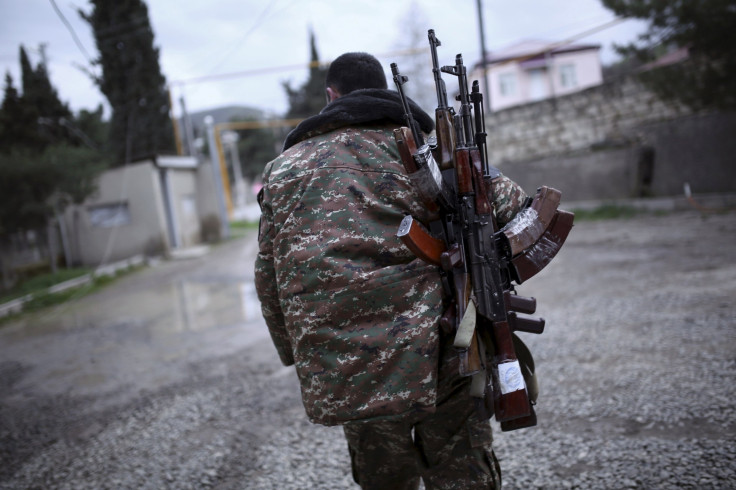Nagorno-Karabakh Conflict: Armenia, Azerbaijan Ramp Up Rhetoric As Crisis Escalates

Clashes in Nagorno-Karabakh, which erupted last week after a gap of over two decades, are showing no signs of abating. On Tuesday, both sides in the conflict — Armenia and Azerbaijan — ramped up their rhetoric, accusing the other of triggering the worst violence the disputed region has witnessed since the Russia-backed ceasefire took effect in 1994.
“All responsibility for what is happening rests with Armenia which is not interested in resolving the conflict and flouts international law,” Azeri Deputy Foreign Minister Khalaf Khalafov reportedly said Tuesday, during a meeting in the capital city of Baku.
Azerbaijan’s Defense Minister Zakir Hasanov said that Azeri troops had been instructed to target Stepanakert — capital of the disputed Nagorno-Karabakh region — if the ethnic Armenian separatists who govern the area “did not stop shelling our settlements.”
Armenian President Serzh Sargsyan, meanwhile, warned that his country may formalize ties with Nagorno-Karabakh by officially recognizing its claim to independence if the clashes continued, adding that the conflict may eventually lead to a “large-scale war.”
“It will affect security and stability not only in South Caucasus, but Europe as well,” Sargsyan reportedly said.
The Nagorno-Karabakh region, which is surrounded by Azerbaijan on all sides, has been a source of prevailing tension between the two nations since 1988, when the Soviet Union was on its last legs. Since the 1994 ceasefire, the area has been under the control of ethnic Armenian separatists, who are seeking full independence from Azerbaijan and prefer to call the region by its ancient Armenian name — Artsakh.
The exact number of people killed over the past four days is not yet clear, as widely varying estimates have been proffered by the Armenia-backed Nagorno-Karabakh military and Azerbaijan’s defense ministry. Azerbaijan’s claim of having killed 170 Armenian troops was dismissed by the Armenian defense ministry Monday, which reportedly termed it a product of “wild imagination.”
The Nagorno-Karabakh military, meanwhile, said it had killed over 300 Azerbaijani soldiers since Saturday — a figure that is at odds with the number provided by Azerbaijan’s government, which, on Tuesday, said 16 Azeri troops had so far been killed in the conflict.
© Copyright IBTimes 2025. All rights reserved.






















